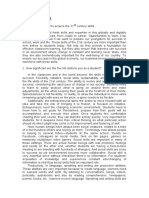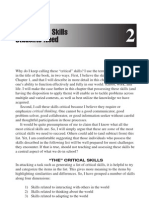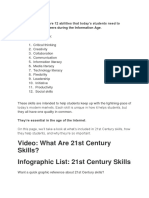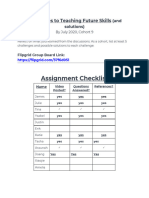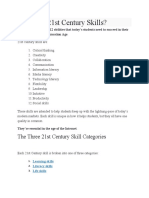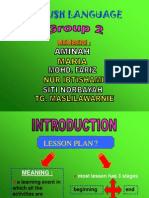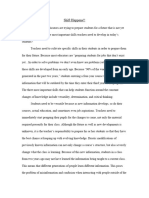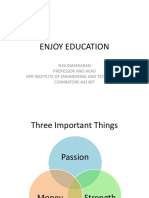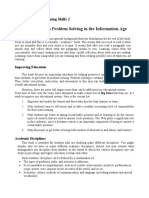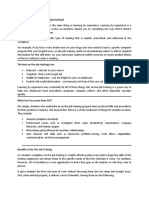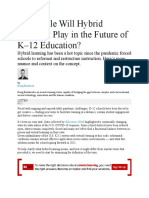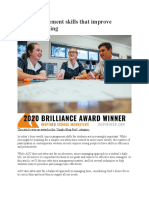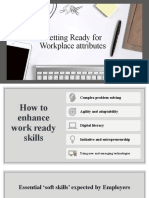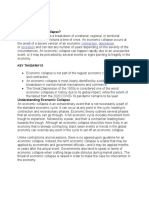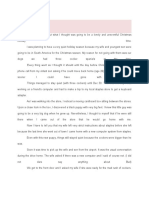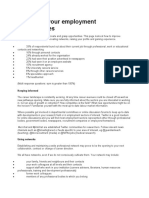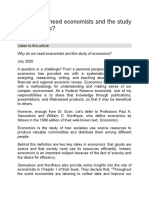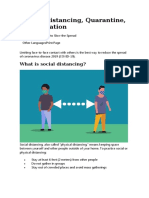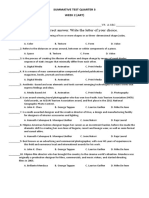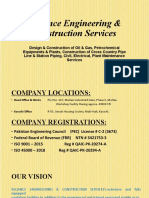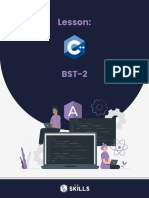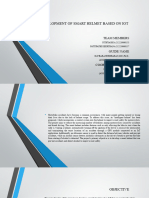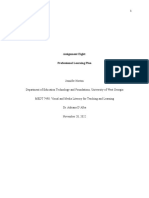0% found this document useful (0 votes)
97 views6 pagesComplex Problem Solving
This document discusses several important skills for students to develop, including complex problem solving, agility and adaptability, digital literacy, initiative and entrepreneurship, using new technologies, soft skills like professionalism and communication, and critical thinking. For each skill, the document provides examples of how teachers can help students practice and improve that skill, such as giving problem-solving activities, creating a dynamic classroom, supporting digital skills, allowing creative projects, and modeling organizational skills.
Uploaded by
annieCopyright
© © All Rights Reserved
We take content rights seriously. If you suspect this is your content, claim it here.
Available Formats
Download as DOCX, PDF, TXT or read online on Scribd
0% found this document useful (0 votes)
97 views6 pagesComplex Problem Solving
This document discusses several important skills for students to develop, including complex problem solving, agility and adaptability, digital literacy, initiative and entrepreneurship, using new technologies, soft skills like professionalism and communication, and critical thinking. For each skill, the document provides examples of how teachers can help students practice and improve that skill, such as giving problem-solving activities, creating a dynamic classroom, supporting digital skills, allowing creative projects, and modeling organizational skills.
Uploaded by
annieCopyright
© © All Rights Reserved
We take content rights seriously. If you suspect this is your content, claim it here.
Available Formats
Download as DOCX, PDF, TXT or read online on Scribd
/ 6









